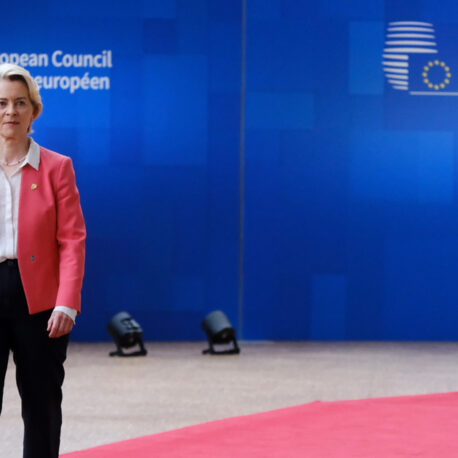
- Finance Finland’s management team discussed key financial sector projects with Members of the European Parliament in Strasbourg.
- These included the digital euro and Open Finance proposals. Both can have significant effects on the European banking sector, and it is very important to carefully weigh the impact against the benefits.
The second half of 2023 will be a busy one for the European Parliament, as it is the last full semester before the parliamentary elections in late spring. Finance Finland’s management team met with Members of the European Parliament in Strasbourg to discuss key financial sector topics currently under negotiation. Two of these included the digital euro and the framework for financial data access (FIDA), which introduces Open Finance in the sector. Parliamentary debate on both proposals began recently.
Finance Finland acknowledges the Open Finance proposal’s potential for innovation and new services but has reservations about its contents. “In the proposal’s current form, it’s difficult to see how it would be possible to achieve the benefits the Commission seeks to achieve without causing significant costs and drawbacks to the sector and consumers”, says Mari Pekonen-Ranta, director of EU affairs at Finance Finland.
Finance Finland is not in favour of the wide scope of the regulation and hopes for a more restricted approach with specific use cases to avoid risks in implementation. Limiting the scope to specific use cases would enable a more gradual, step-by-step type of approach to implementation.
As positive elements in the proposal, Finance Finland welcomes the possibility to receive compensation from shared data, which is in line with the recently approved Data Act. Finance Finland also supports the fact that data sharing under the financial data access framework is limited to licensed and registered entities only.
The digital euro is another point of contention. It is very hard to see what additional value an overlapping payment system maintained by authorities would offer for the average European consumer or why there would be a great demand for it. Even so, banks are expected to make huge investments into the digital euro ecosystem without a sustainable business model. There is a need for a more balanced and fair approach going forward. As the proposal can have a significant impact on the European banking sector, it is very important to carefully weigh the impact against the benefits.
Finance Finland’s representatives and the MEPs both agreed that due to the large number of pending regulatory projects related to digitalisation, much more attention should be paid to assessing their full impact and interdependencies.
Still have questions?
|Contact our experts
Looking for more?
Other articles on the topic

Hooray for simplifying regulation! But obligations must be streamlined thoughtfully, without compromising environmental goals

Putting EU citizens’ savings to work – Commission seeks growth by promoting saving and investment

Finance Finland’s CEO Ahosniemi: The Commission makes grand declarations for better regulation but fails to back them up with concrete measures in its work programme

The EU needs to build a more favourable investment climate




